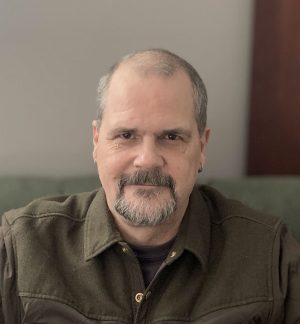While many are on guard for the lies of politics and advertising and promotion at large, few are ready for outrageous truth claims when it comes to their faith. When someone does question the veracity of a belief or practice of a particular church or denomination, the religious institution in question often directs them to documents called “statements of belief” or “statements of faith.” Sometimes, in longer forms (sometimes books and even several volumes of books) these statements are called “confessions.”
Back in 1967 Scot McKenzie advised young idealists who were going to San Francisco in search of ultimate truth to were some flowers in their hair. If you’re searching for ultimate truth in confessions of statements of faith or belief, here’s my advise: put your waders on. Waders – you know – those rubber hip boots that fishermen wear so they can get into the stream without getting wet. When you are looking for ultimate truth amidst conflicting statements of faith, you will need to put your waders on because you will be hip deep in theological, in-house terms that only folks in ivory towers understand, care and argue about.
But esoteric language and terminology is not the real problem you will encounter on your modern day “pilgrim’s progress” – beyond their esoteric language, many statements and confessions of faith/ belief are filled with assertions that attempt to distinguish that church or ministry or denomination from others – these declarations are known within the religion industry as “unique truth claims.”
For example, in the marketing world, promotions for one soap may not actually say another soap product is not even qualified to be called soap, but the soap company paying for the advertising will make a unique truth claim trying to persuade you, the consumer, that its soap is better and more unique than other soaps (similar marketing techniques are used, of course, with all products, from soap to soup to nuts).
More than that, some of the more outlandish affirmations of big business religion are known, particularly by their critics, as “exaggerated truth claims” – which is just a shade short of describing them as lies and untruths.
So the message conveyed behind “unique truth statements” is something like this: “others may have some truth and some claim to legitimacy, but here’s why we are better than they are.” The religious mud throwing intensifies with “exaggerated truth claims” which often amount to “why we are right and everyone else is wrong.”
Based on my observations and study of statements of faith, I conclude, with Jesus’ words in Matthew 12:34 (Authorized King James Version, 1611), “in the abundance of words there wants not sin.”
The New International Version, from which I normally read and study, translated the words of Jesus in this passage in Matthew 12:34, “For the mouth speaks what the heart is full of.” I like that translation as well, because we are all familiar with someone who disagrees with an argument we are making and responds “you are full of ____.” I don’t know if scholars agree that being “full of ____” is the sense of the “original Greek” but I have no reservation whatsoever believing that Jesus would have included that innuendo.
When I search for a brief summary of my faith, I look to the Sermon on the Mount. Beyond that, I look to the Four Gospels, and then, other biblical books. In addition, I find the Apostle’s Creed – a historically established and orthodox statement of faith – to be biblical, Christ-like and brief.
Two major creeds came out of early Christian history – one called the Apostle’s Creed and the other called The Nicene Creed. “Creed” is an English word that is derived from the Latin word credo – credo literally translated means “I believe.”
Thus, in The Apostle’s Creed, the earliest and most well known of the creeds, each statement begins with the word “I believe.” The Apostle’s Creed is a regular part of formal worship services in some traditions – with that said, there are many versions of The Apostle’s Creed that have denominationally morphed over the years, so that versions are more in keeping with the faith and practice of a particular Christian tradition – an interesting thought to ponder, in and of itself! Rather than searching literature for a guide to influence and edit current belief, the tendency is, and always has been, to edit, revise and modify the document to fit current belief and practice.
The version of the Apostle’s Creed that follows is called an ecumenical version – which attempts to be true to the original thought and also attempts to stay out of the theological potholes that denominational versions can created.
Apostle’s Creed
I believe in God, the Father almighty creator of heaven and earth. I believe in Jesus Christ, God’s only Son, our Lord, who was conceived by the Holy Spirit, born of the Virgin Mary, suffered under Pontius Pilate, was crucified, died, and was buried; he descended to the dead. On the third day he rose again, he ascended into heaven, he is seated at the right hand of the Father, and he will come to judge the living and the dead.I believe in the Holy Spirit, the holy catholic Church, the communion of saints, the forgiveness of sins, the resurrection of the body, and the life everlasting. Amen.
One clarification in case you are not that familiar with the Apostle’s Creed – the third “I believe” begins “I believe in the Holy Spirit, the holy catholic Church” … and then it continues.
Some who are not Catholic Christians object to The Apostle’s Creed, thinking that such a statement of faith and truth obligates them to believe in the Roman Catholic Church, rather than their denomination, as a Lutheran, Baptist, Methodist or non-denominational Christian.
The word “catholic” in the Apostle’s Creed actually denies the legitimacy or logic of saying that any church is the one and only true church.
But the Apostle’s Creed has the word “catholic” in lowercase, while the word “Church” that follows is capitalized, in uppercase.
The word “catholic” as used in the Apostle’s Creed means the universal body of Christ that transcends any building or any denomination – it is not a definitive term about an organized legal entity doing business on earth. The word “catholic” in the Apostle’s Creed actually denies the legitimacy or logic of saying that any church is the one and only true church – such as asserting that the Roman “Catholic” Church is the one and only true church.
The word “Church” is capped in the Apostle’s Creed because it is the central topic. The Church is the body of Christ, but today the word “church” too is somewhat jumbled and confused. Many people talk about “going to church” when they mean that they are getting into a car or taking a bus to a building, which they think of as “a” church but – gasp, get ready for this! – religious authorities have no problem with the laity thinking and believing that “a” church is “the” Church.
The universal, catholic Church, as a confession of faith, slices through exclusive, unique and exaggerated truth claims. The Apostle’s Creed explicitly denies that the Church is encompassed in a building or a denomination, because it, the body of Christ, is universal, and therefore “the” body of Christ, the Church, is more who we are, by God’s grace, than “a” church — a geographical place to which one might travel and/or a legally incorporated religious institution of which one might be a member or said to “belong.”
I believe that Christ followers may or may not be members of a physically incorporated entity that calls itself “a” church – that’s our choice. But Christ followers have no choice whatsoever when it comes to the Church. We are members, by the grace of God, in the universal body of Christ, regardless of membership or lack thereof in earthly organizations.
I believe that membership in the Church, the universal body of Christ, means that we achieve nothing other than pride and arrogance when we argue about one church being better or worse than another. And when we fall for any outrageous truth claims that one church is the one and only true church, then we are far from the Jesus Way – we are overwhelmed with a theological storm in a tea cup, drinking deeply from the corrupt, polluted deceptions of the father of all lies, whose very language of exaggerated truth claims is a lie (John 8:44).











 Plain Truth Ministries | Box 300 | Pasadena, CA 91129-0300
Plain Truth Ministries | Box 300 | Pasadena, CA 91129-0300

